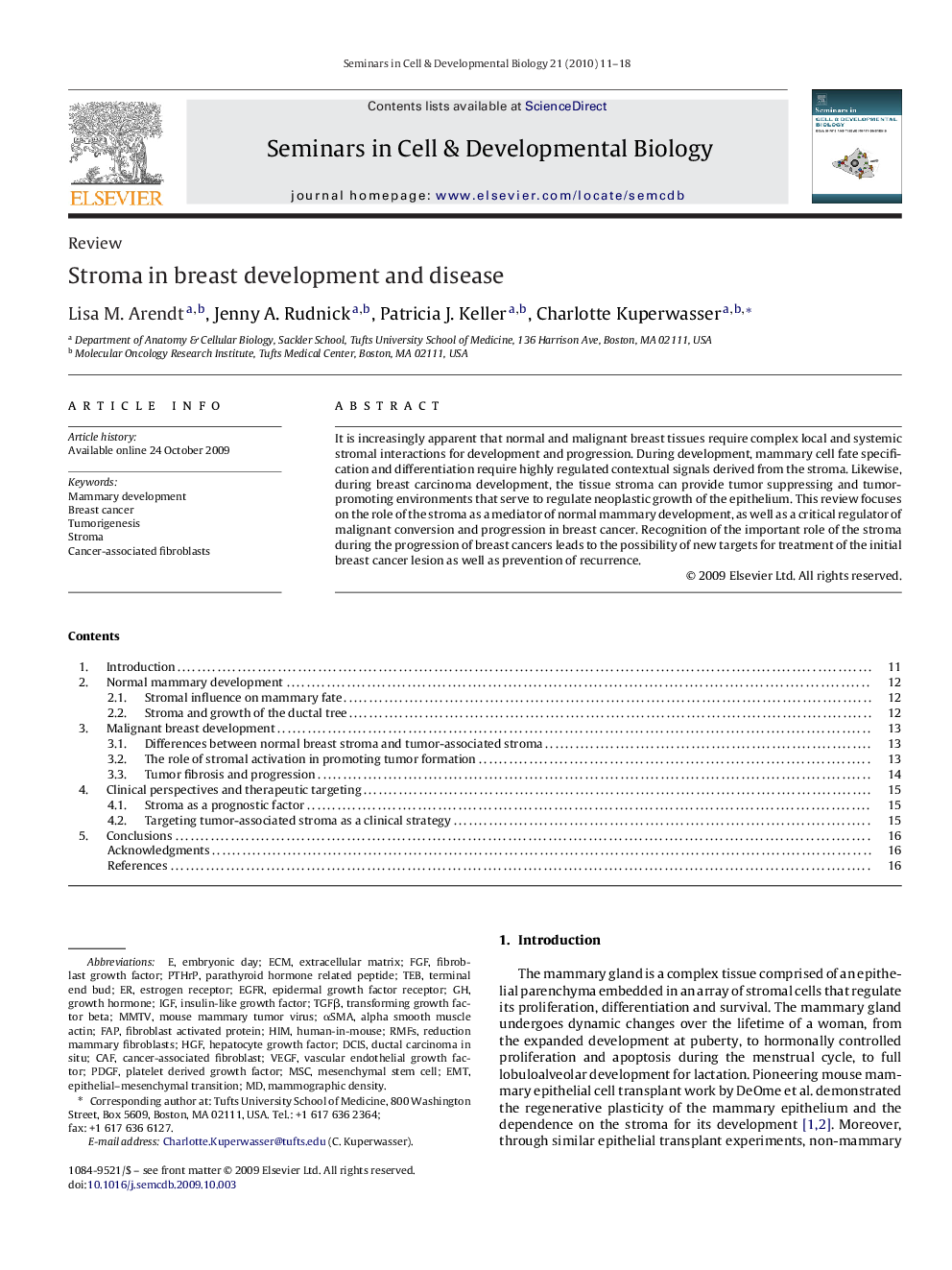| Article ID | Journal | Published Year | Pages | File Type |
|---|---|---|---|---|
| 10959259 | Seminars in Cell & Developmental Biology | 2010 | 8 Pages |
Abstract
It is increasingly apparent that normal and malignant breast tissues require complex local and systemic stromal interactions for development and progression. During development, mammary cell fate specification and differentiation require highly regulated contextual signals derived from the stroma. Likewise, during breast carcinoma development, the tissue stroma can provide tumor suppressing and tumor-promoting environments that serve to regulate neoplastic growth of the epithelium. This review focuses on the role of the stroma as a mediator of normal mammary development, as well as a critical regulator of malignant conversion and progression in breast cancer. Recognition of the important role of the stroma during the progression of breast cancers leads to the possibility of new targets for treatment of the initial breast cancer lesion as well as prevention of recurrence.
Keywords
DCISPTHrPαSMAHGFPDGFMMTVFAPMSCFGFTGFβIGFCAFECMEGFRTEBalpha smooth muscle actinStromaHIMTransforming Growth Factor BetaMammographic densityMammary developmentTumorigenesisEMTembryonic dayBreast cancerMesenchymal stem cellHepatocyte growth factorVascular endothelial growth factorVascular Endothelial Growth Factor (VEGF)platelet derived growth factorfibroblast growth factorInsulin-like growth factorCancer-associated fibroblastscancer-associated fibroblastExtracellular matrixGrowth hormoneMouse mammary tumor virusTerminal end budparathyroid hormone related peptideDuctal carcinoma in situEpithelial–mesenchymal transitionEstrogen receptorEpidermal growth factor receptor
Related Topics
Life Sciences
Biochemistry, Genetics and Molecular Biology
Cell Biology
Authors
Lisa M. Arendt, Jenny A. Rudnick, Patricia J. Keller, Charlotte Kuperwasser,
